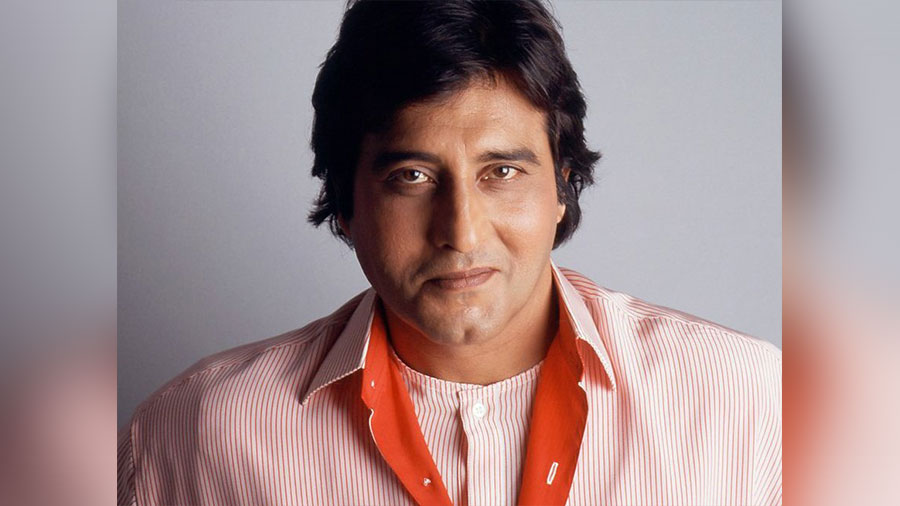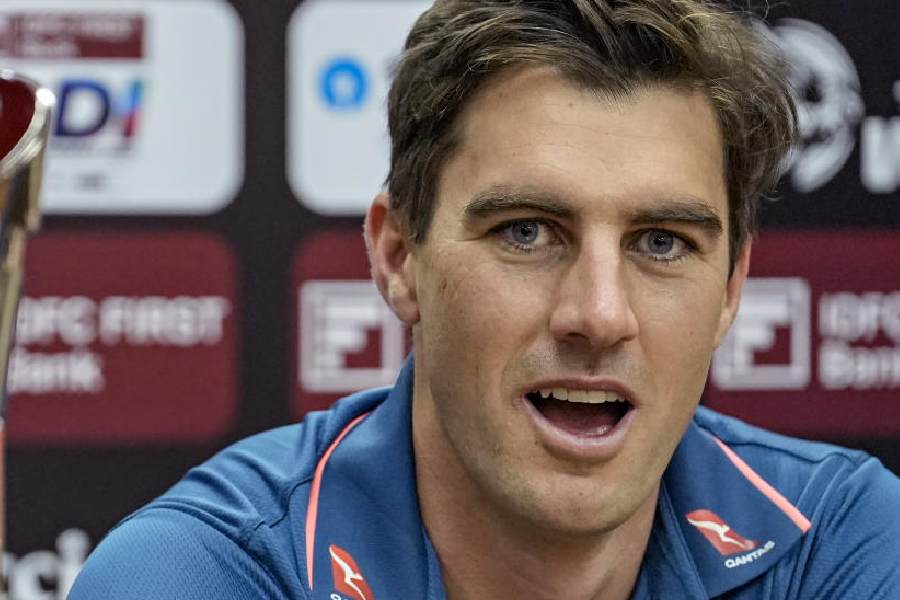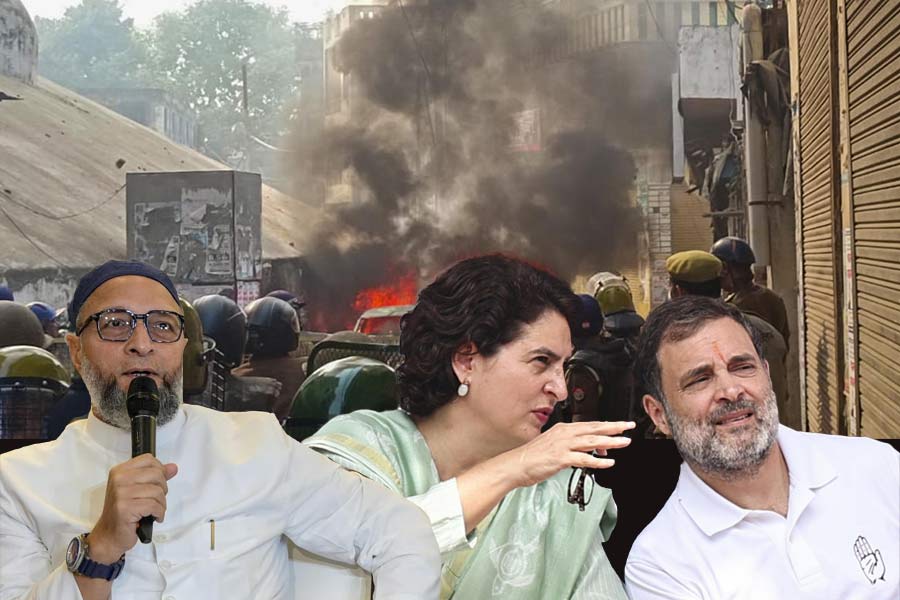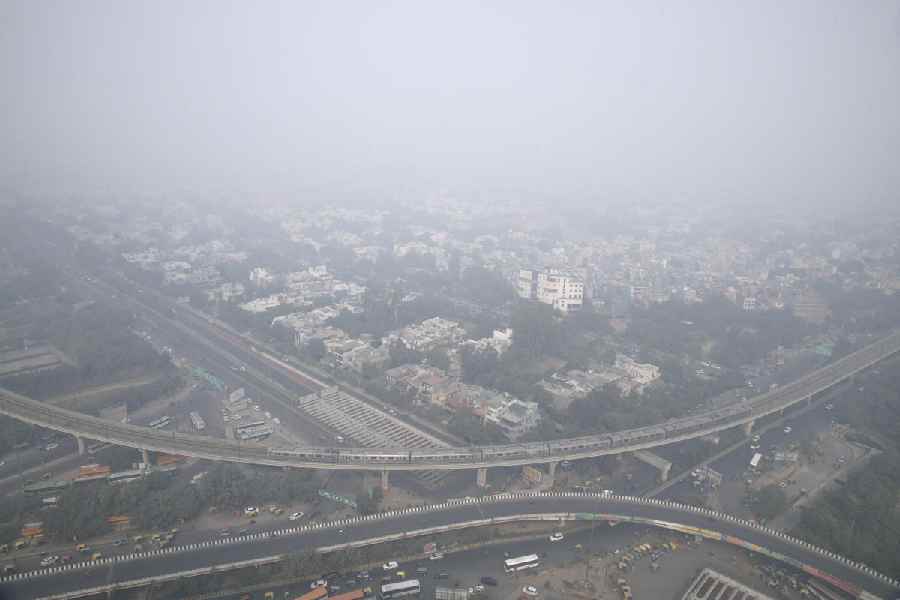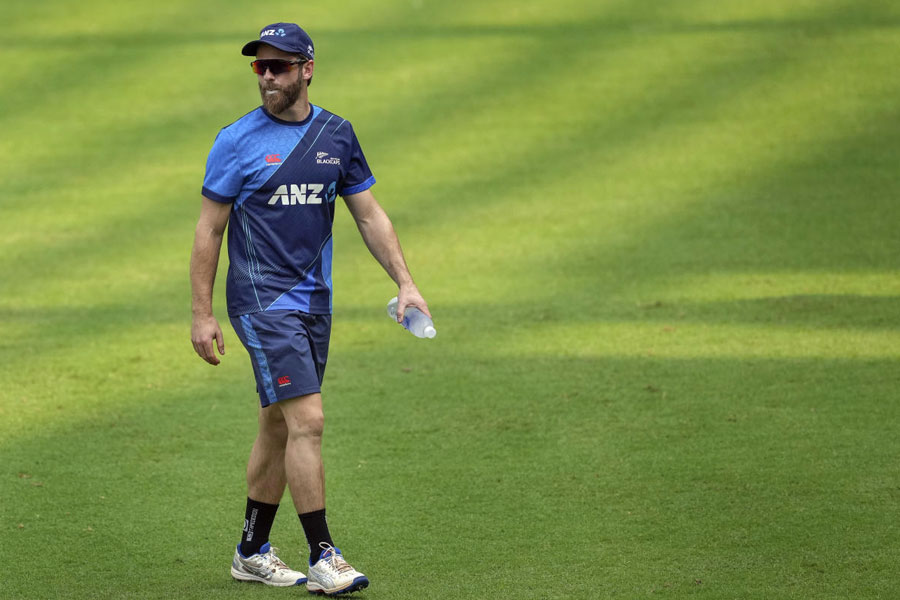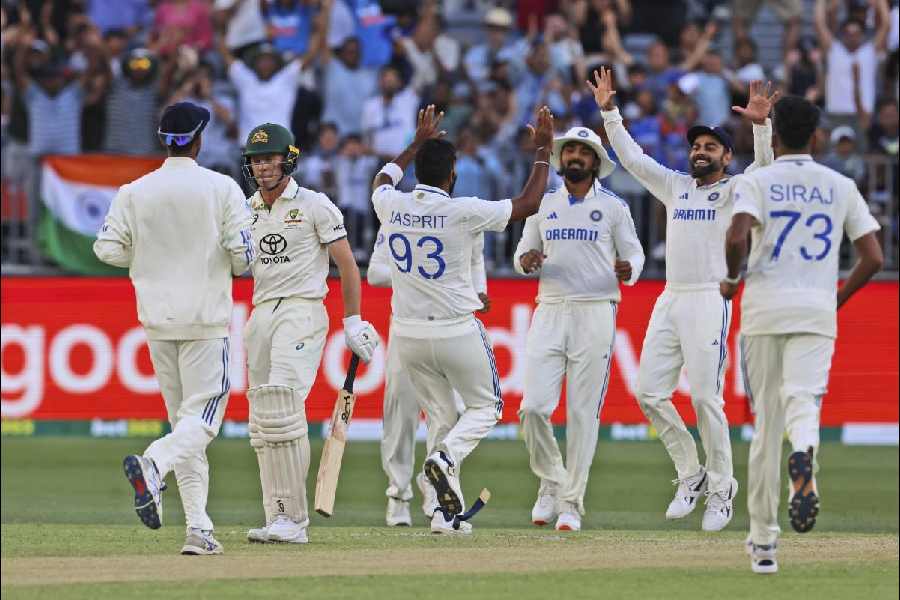Purists and nostalgia-apologists might go for the 1950s or the ’60s, but my vote for the most phenomenal decade for Hindi cinema goes to the 1970s. Just in terms of the sheer range that the decade encompassed, no other even comes close. We had Amitabh Bachchan lording it over the box office. At the same time, we had Naseeruddin Shah. We had a Dharam-Veer coexisting with an Ankur. We had Zeenat Aman at one end of the spectrum. At the other end we had Shabana Azmi, with Jaya Bhaduri and Rakhee shining bright in between.
And then we had Vinod Khanna.
Looking back at his filmography and career, I wonder what it is that made him such a draw. In the 1970s and ’80s when I was a fanatic Bachchan fan, brooking no opposition to his stardom, the one actor I was immensely fond of was Vinod Khanna. This despite him being the one real contender to Bachchan. With him, that did not matter. However, in the 100-plus films in which he starred, only a handful have actually stood the test of time.
The first Vinod Khanna film I remember watching is Adha Din Adhi Raat (1977), and the only thing I still recall about it is the sense of excitement that a 10-year-old feels about being in a theatre. It is one of the hundreds of forgettable Hindi potboilers – and the star seems to have made a career of those. There are too many films of that kind in his filmography to mention. In fact, it will probably be easier to list the ones that still ring a bell.
What was it then that made for the Vinod Khanna mystique? Was it the ‘hypnotic gaze, brooding personality and Kirk Douglas-style cleft chin’ as a critic noted? Was it because in an era that had Bachchan, Rajesh Khanna, Rishi Kapoor, Jeetendra and Dharmendra working in tandem, apart from Shatrughan Sinha and Sanjeev Kumar, and a host of chocolate faces, he was the bona fide pin-up?
Refer his bespectacled, moustachioed husband act in Shaque. In a performance that fetched him best actor nominations, his lovemaking scene and a swimsuit moment on the beach are still talked about. Was it the sheer casualness with which he gave it all up to join Osho Rajneesh, leading another critic to later headline a piece on him as ‘The actor who became a monk and sold his Mercedes’?
‘Aavey, aavey Vinod Khanna’
Author-columnist-humorist Krishna Shastri Devulapalli provides an insightful take on this: “I got sucked into this magnetic field called Vinod Khanna in 1976 or so, when Doordarshan telecast a movie called Imtihaan. I couldn’t take my eyes off this quiet man with the long sideburns, oversized glasses, and striped suits with their giant lapels and flared trousers. It was my first bona fide boy crush. I started to watch Hindi films because of this man…. When Vinod Khanna took off to Oregon, I stopped watching Hindi films. For an entire month.”
Adds Nirupama Kotru, civil servant and cultural commentator, “There was a Kashmiri folk song that women sang at weddings to welcome the new groom; the refrain went as follows: ‘Aavey, aavey, Rajesh Khanna’ (here comes Rajesh Khanna). At one wedding, we girls decided we had had enough. I led the protest march and demanded that they change the chorus to: ‘Aavey, aavey Vinod Khanna’. The ladies clicked their tongues and said it was Rajesh Khanna whose name came on their lips automatically. Not Vinod Khanna. It was infuriating. Sometimes audiences, like those women… don’t realise a good thing when it stares them in the face.”
A star with few A-list directors and solo hits
What is remarkable about Vinod Khanna is that he made it to the top without a big banner or A-list directors backing him. The only top director he worked with in the era was Raj Khosla (Mera Gaon Mera Desh, and Kachhe Dhaage). However, Khosla was no longer the filmmaker he was in his heyday in the ’50s and ’60s. And even Khosla went the Rajesh Khanna route with Prem Kahani (relegating Vinod Khanna to a cameo) and to Amitabh Bachchan in Dostana.
Prakash Mehra did cast him in Haath Ki Safai (though the ‘hero’ here was Randhir Kapoor), before going big with Bachchan. Interestingly, three of the Bachchan-Vinod Khanna films together came from Mehra’s stables, Hera Pheri and Muqaddar Ka Sikandar directed by him, and Khoon Pasina (made by his associate director Rakesh Kumar, which he distributed). Raj Sippy, who became big with Satte Pe Satta, debuted with Vinod Khanna in Inkaar.
The only big director who backed him was Gulzar, giving him his two career-defining and in many ways career-altering films: Mere Apne and Achanak. But Gulzar was never full-on mainstream.
It is also interesting that despite being touted as a challenger to Amitabh Bachchan, Vinod Khanna had very few true-blue solo hits. By the time he delivered Qurbani, he was already bidding goodbye, and close to 50 films in the 1970s starred him with another major star.
Without a doubt he outshone Bachchan in Hera Pheri and Parvarish, and almost stole his thunder with a special appearance in Khoon Pasina. Krishna Shastri says, “In Amar Akbar Anthony, when Khanna beat the crap out of Amitabh Bachchan, the crowd favourite, I was the only one in the audience who cheered. I also wrote a letter to Manmohan Desai that the unjust snipping of Vinod Khanna’s role hadn’t gone unnoticed, and that I would be taking it up with the proper authorities. I think I addressed it to Morarji Desai because I didn’t get a reply! I loved it when Vinod Khanna got the better of Bachchan yet again in Parvarish, with that neat leakproof-stocking-that-can-cover-a-bullet-wound trick. In Muqaddar Ka Sikandar, when ‘Memsaab’ (Rakhee) preferred him to Bachchan, I went ‘No shit, Sherlock’ or whatever the ’70s equivalent of that phrase was.”
But barring an Achanak and Inkaar, the odd Jail Yatra or Khuda Kasam, he had precious few hits as a single hero. Krishna Shastri offers his perspective: “If Amitabh Bachchan, Dharmendra, Rishi Kapoor and Vinod Khanna stood together, your eyes would have to go to Vinod Khanna first. That’s probably because of how much more suave and cool than the other guy he came off in almost all these films. Without even trying. I loved his pairing with Dharmendra in The Burning Train (1980).... In Qurbani, it was obvious that Feroz Khan should have been the one who died. And Zeenat Aman be taken immediately to a good optometrist!”
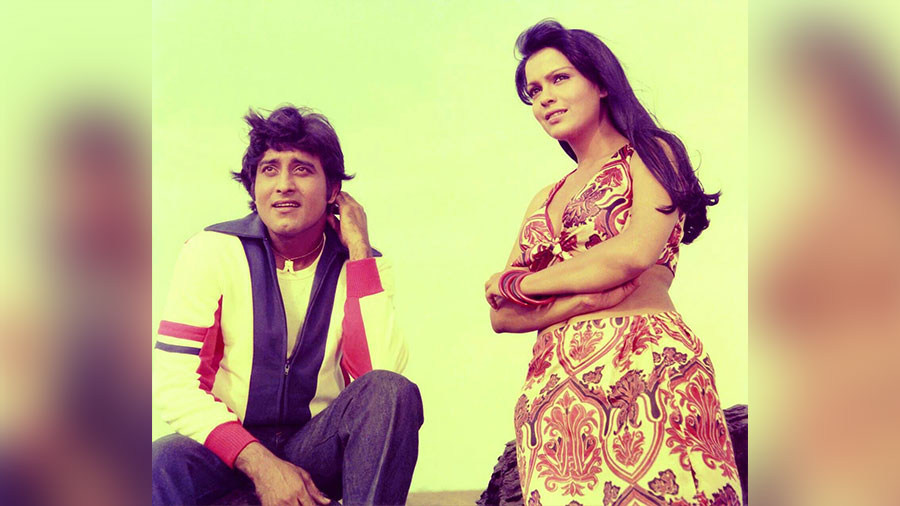
Rainbow of melody but no chartbusting soundtrack
However, what I consider Vinod Khanna’s biggest achievement is that he made it to the top without having a single musical hit to his credit. Going back in time, right from the 1940s, a chartbusting soundtrack has been a sine qua non for Hindi film stars wanting to strike gold. Vinod Khanna had almost none. The big hit songs in Amar Akbar Anthony and Muqaddar Ka Sikandar belong to Rishi Kapoor and Bachchan in the former and Bachchan in the latter. The only musical hit in his career was Qurbani, and even in that the biggest songs went to Zeenat Aman (and even Amjad Khan, with ‘Laila main Laila’). It also says something about this aspect of his career that unlike other superstars, he did not have a regular playback voice.
Despite this, Vinod Khanna had a string of melodies right through his career, even if they did precious little for the films they were part of. Here’s my pick of seven songs – a rainbow of melody – featured on Vinod Khanna.
Koi hota jisko apna (Mere Apne)
Lyrics: Gulzar. Music: Salil Chaudhury. Singer: Kishore Kumar
Arguably, the shining star of his career, in the film that made a star of Vinod Khanna. Gulzar gave the actor a few of his most well-known songs and also used a part of ‘Sun meray bandhu re’ (Sujata), in Achanak.
Naino mein darpan (Aarop)
Lyrics: Maya Govind. Music: Bhupen Hazarika. Singers: Lata Mangeshkar-Kishore Kumar
This duet is for me Vinod Khanna’s finest song, defining the word ‘dulcet’. Bhupen Hazarika’s intricate composition, a triumph of melody. Maya Govind, debuting as a lyricist, has never written a better song. While the simplicity of the picturisation is redolent of a time with a ‘thahrao’, a stillness, that has gone missing, the humble bicycle has never been as sexy as when Vinod Khanna rides it.
Ruk jaana nahin (Imtihaan)
Lyrics: Majrooh Sultanpuri. Music: Laxmikant-Pyarelal. Singer: Kishore Kumar
Majrooh Sultanpuri’s evergreen inspirational ode to the spirit of man is to Hindi film songs what Norman Vincent Peale’s The Power of Positive Thinking or Dale Carnegie’s How to Win Friends and Influence People are to self-help motivational books or Tagore’s ‘Ekla cholo re’ is to lovers of Rabindrasangeet. The only thing that To Sir with Love, the film from which Imtihan is ‘inspired’, lacked is ‘Ruk jaana nahin’.
Bambai se aaya mera dost (Aap Ki Khatir)
Lyrics: Shaili Shailendra. Music and Singer: Bappi Lahiri
In a forgettable film, it is this song, with its peppy melody and crazy lyrics, that has endured. Hindi music discovered a new unmistakable voice – Bappi himself. And to think that this song was not included when the film released – its popularity on the long-playing record drove the film-makers to shoot and include it right at the end of the film, to ensure that viewers stayed to watch till the end.
Chahiye thoda pyaar (Lahu Ke Do Rang)
Lyrics: Faruk Kaiser. Music: Bappi Lahiri. Singer: Kishore Kumar
A retro favourite on the airwaves today, Bappi Lahiri’s peppy beats and Kishore’s youthful vocals make this a winner, with an energetic Vinod Khanna keeping pace beat for beat and word for word. The line ‘Koi haseen kar na saka mera saamna’, well, the star may have been singing it for himself.
Hum tumhein chahte hain (Qurbani)
Lyrics: Indeevar. Music: Kalyanji-Anandji. Singers: Manhar Udhas, Anand Kumar C., Kanchan
‘Aap jaisa koi’ and ‘Laila main Laila’ may have been all the rage, but there’s no denying the pathos and longing that marks this number. Despite a gorgeous Zeenat Aman in the skimpiest of clothes, it is Vinod Khanna who grabs many eyeballs.
Surmai shaam (Lekin, 1990)
Lyrics: Gulzar. Music: Hridaynath Mangeshkar. Singer: Suresh Wadkar
It is only fitting that we end this countdown with Gulzar’s compositions. Lekin was a Dimple Kapadia film, but Vinod Khanna left a mark, nowhere more eloquently than in this elegy to the onset of dusk, the remains of a day, and everything it stands for. If there’s a Hindi film song equivalent to Rilke’s ‘Lord, it is time’, this is it.
‘Indian audiences didn’t deserve you, Vinod Khanna’
After his stint with Osho, Vinod Khanna made a huge comeback with the solo-starrers Insaaf and Satyameva Jayate (one of his best performances). The industry seemed ready to give him the crown that eluded him in his first outing and that he so nonchalantly gave up when it was his for the taking. But like in the 1970s, his second innings was marred by a string of mediocre, often shoddy film films. The failure of big-ticket films like Dayavan, Batwara and Mahasangram only made things worse. The last phase of his career was more or less a creative and commercial disaster, so that for the new generation he sadly remains ‘Salman Khan’s father’ in Dabangg (2010) and its sequel.
But for those who came of age in the 1970s, he remains a class act. Krishna Shastri says, “What set him apart were his seeming nonchalance, his panther-like grace, his good looks, a combination of raw sexuality and cultured old-world gentlemanliness … and his undeniable acting chops. Rishi Kapoor was cute, Amitabh Bachchan too self-aware, Dharmendra a man’s man. Vinod Khanna could seduce the gals and the guys and the masses and the classes. That’s the crux of it.”
As Nirupama Kotru wrote on his passing, “Indian audiences didn’t deserve you, Vinod Khanna. Leave them to their Rajesh Khannas and Amitabh Bachchans. There was something truly remarkable about a man who threw away stardom for a spiritual quest, and that made him a legend like none other.”
Shantanu Ray Chaudhuri is a film and music buff, editor, publisher, film critic and writer

